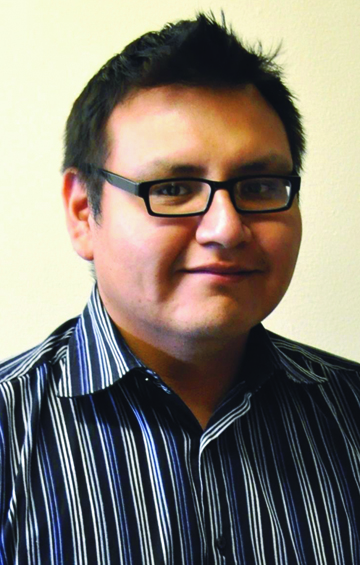 As November’s Native American Heritage
As November’s Native American Heritage
Month, opened with a loud burst in Minneapolis when the Washington
NFL team came to town, barely. On game day, word spread through the
crowds of protesters marching up from Franklin Avenue to TCF Stadium
that the Washington team’s bus had an accident before pulling into
town and, according to media reports, the players were, “shaken.”
At the rally at TCF Stadium, comedian and activist Dick Gregory joked
about the turn around in temperature for the rally. “Dan Snyder,
you’re dealing with people who can change the weather! You can change
that name!” Someone set out some extra tobacco, it seems.
While protests and rallies are a way
for people to get together, share a common passion and draw attention
to an issue, personally, I’m not a fan. In my previous experience as
a political organizer, we measured how effective an effort was by the
results it produced, usually an election result. But in the process,
people feel connected and share their common passions. The important
part in movement building is to have a clear goal in mind and
calculated ways to achieve that goal.
Every struggle in America to achieve
rights guaranteed to us in the spirit of the Constitution has had
many prongs, whether the issue of slavery, women’s voting rights or
civil rights; there have always been many voices involved, not always
in agreement, but the goal was the same. In
the Native American community, 10 people can have 20 different
opinions on the same subject, it’s just the way we are as a people,
we take time to chew over a problem and posit different methods to
achieve our goal. But everyone has a place and every opinion is heard
in deliberation. At the end of the day, the strategy is adopted by
everyone involved.
My favorite model was the Women’s
Suffrage movement almost 100 years ago. While historians and scholars
more versed in it than I, the movement was encapsulated in the 2004
film “Iron Jawed Angels.” I’ve always appreciated the way the
dynamic between Alice Paul and Carrie Chapman Catt was portrayed.
Paul was a radical of her time, wanting to gain attention in the
streets for her right to vote as a woman and Chapman Catt was as
close to a Washington insider as a woman could get at the time.
Paul’s tactics drew the ire of the establishment that Chapman Catt
represented but the effort was not lost as an opportunity. While Paul
was arrested, imprisoned, force-fed and humiliated, Chapman Catt took
the cue to whisper in the ears of power brokers, effectively saying,
“wouldn’t you rather deal with us?”
Our strength as Native people is that
– historically, at least – we always had a place for everyone. It
may have been out of sheer necessity, continuing our way of life
through our progeny but we never cast anyone out unless they
committed the most grievous of acts against our own. That built up an
ethic among us to listen and respect one another.
Then, colonialism happened and we were
fragmented. As Winona LaDuke put it years ago, “We cannot struggle
against the oppressor, so we struggle against each other.” That is
a greatest weakness at present. We forget that everyone had a place
in our society and that everyone’s ideas were heard; when it came
time to act, perhaps not all ideas were implemented, but we knew the
actions we took as a people were for the greater good and accepted
it.
It’s one thing to declare these
principles, it’s another thing to live by them.
On Nov. 22, three Sisseton Wahpeton
Oyate citizens were killed by a fellow tribal citizen. Among the dead
are Candace LaBelle, Angela Adams and Vernon Renville. While the
investigation is ongoing, it’s difficult to see why such an act –
although not uncommon on reservations – continue to happen in this
day and age when we are reclaiming our traditional identities and
working hard to live by our principles.
When The Circle visited
Sisseton in September, Renville was a leading figure in the Two
Spirit community on the reservation. He was a sundancer, knew his
traditions and found a purpose in reintegrating the Two Spirit
identity into his tribal community. Tragic does no justice to the
loss that nation has suffered.
Then came the news from Ferguson,
Missouri on Nov. 24 that Mike Brown’s death was effectively justified
by the police officer who fired the shots. Tamir Rice, a 12 year-old
in Cleveland, Ohio was shot after brandishing a toy pistol on Nov.
22. Also, Eric Garner’s death was justified by a grand jury in Dec.
3. Of course, the legal realities are simply that the grand juries
found no cause to indict the officers responsible for the deaths of
Brown and Garner and Rice’s death is under investigation and a grand
jury will hear the case.
In all of this, whether a mascot being
perpetuated, the deaths of our own people by our own people or the
deaths of our black brothers and sisters, it’s hard to know where
justice resides. It seems that justice is a paradoxical game of
chicken in America. The black and brown citizens want our inherent
human and legal dignity respected like anyone else and when it’s not,
we get angry and rightly so. Those in power then get scared by our
anger, saying that if we want to be treated like human beings, we
should act like it, withholding justice from atop the power
structure. One wonders if this is the period of blinking or
collision.






